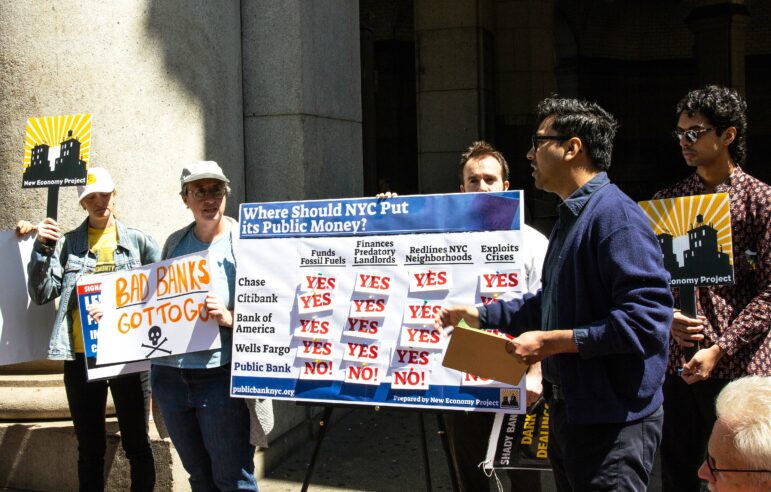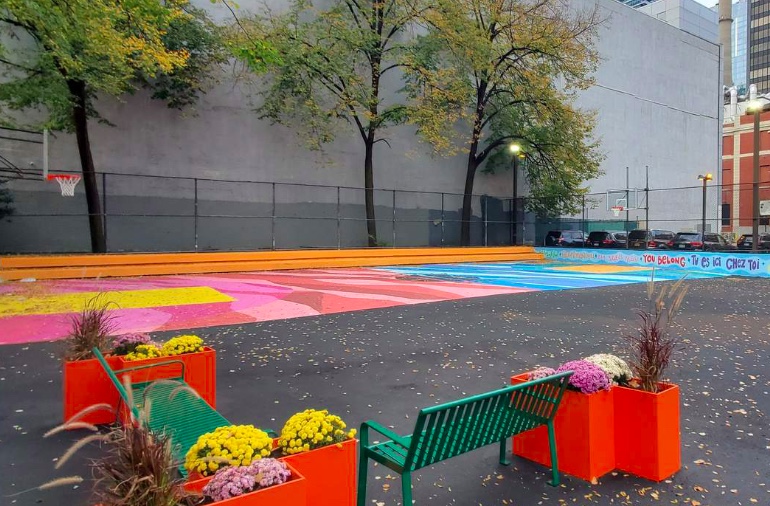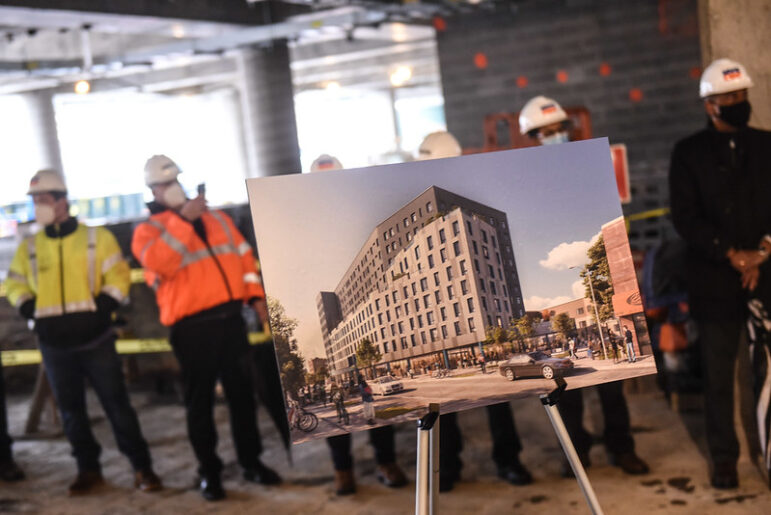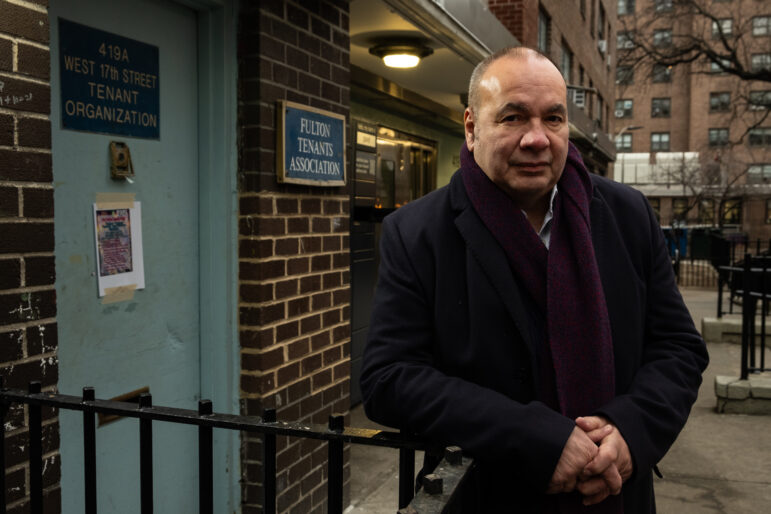The federal Department of Housing and Urban Development is moving to auction more than a dozen dilapidated housing developments around the city to new owners. Last week, residents of two buildings on Bed-Stuy’s Gates Avenue, who had been hoping to buy their buildings themselves, got an even ruder shock: The same landlord who ran their buildings down is finally taking responsibility for the property—and abandoning federal backing entirely. The tenants, who rely on federal subsidies to help pay the rent, now have no assurance they will be able to remain in their homes.
The buildings at 940 and 950 Gates Avenue in Brooklyn had been scheduled to be auctioned on May 5 at the Kings County Courthouse. The auction was expected to draw many bidders—including the tenants, who sought to turn the complex into a cooperative. The property is a major fixer-upper, but tenants decided the prospect of homeownership made the effort worthwhile. “We thought it was a good thing,” said Delores Morris, a tenant leader.
But earlier this month, the auction was postponed due to what HUD asserts was a clerical error—“An attorney working for HUD failed to record the required foreclosure documents during the allotted time frame,” said local HUD spokesperson Adam Glantz. Then, on May 6, the building’s owner, Gates-Patchen HDFC, came forward to pay off its remaining $1.4 million in debt, and thus remove the buildings from federal control.
This is the same landlord who presided over the buildings’ deterioration, which left tenants with broken elevators and needing an estimated $6 million worth of repair work. But Glantz says his agency’s hands are tied: “They’ve wired us the money, and we can’t refuse.”
The decision by the owner to pay off its mortgage puts the tenants in jeopardy. Since they were built 30 years ago, the buildings have received assistance under the federal Section 8 program, which lets tenants pay one-third of their income in rent while the government makes up the difference between that payment and the market price.
Generally, when a building exits the subsidy program, tenants may qualify for vouchers to help pay for housing on the private market. But as a result of recent federal budget cuts and ongoing rises in homelessness, those vouchers are already in critically short supply. Glantz would not say whether tenants in the complex would receive vouchers that would enable the rent assistance to continue. “We have to leave that question open at this point,” he said.
He added that the owner agreed to sign a rider assuring that rents in the building would remain affordable. “We can put conditions on the sale,” he said. “And they have signed off on them.”
But that may not be enough to help tenants. According to Glantz, the owner has agreed that tenants would have to make less than 95 percent of median income in the New York area, or about $58,900. Assuming a tenant pays approximately 30 percent of income in rent, new rents on the building could be over $1,600 a month. Current rents in the 104-unit complex run from $565 for a studio to $925 for a four-bedroom apartment, including tenant payments and government subsidies.
The Urban Homesteading Assistance Board, which has been working with the tenants on their co-op plan [and shares offices with City Limits], is reviewing possible responses with the residents—and mulling a court challenge.








